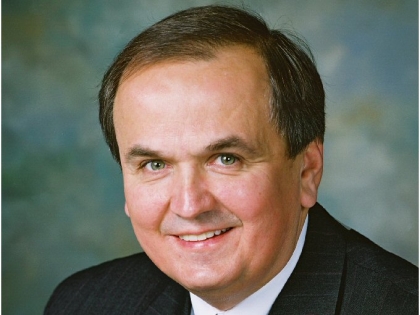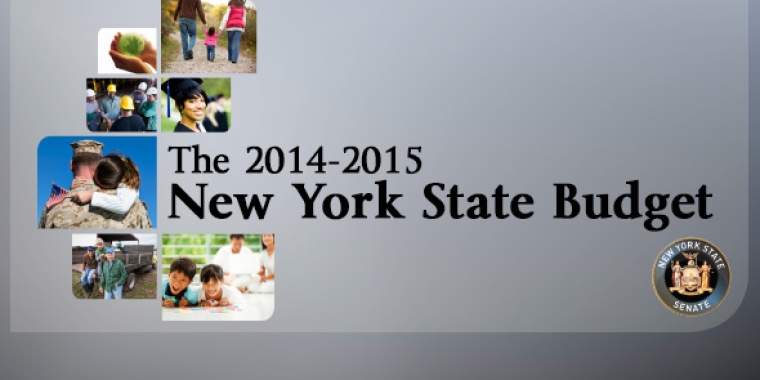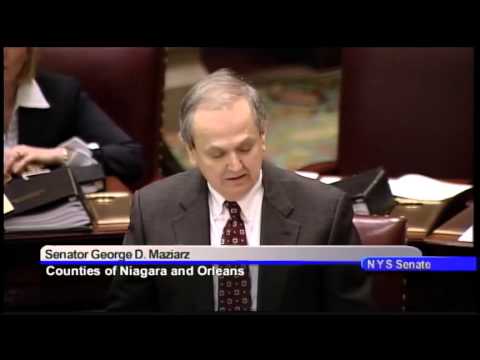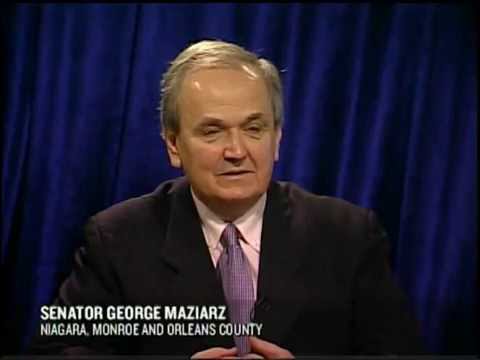
Tougher Medicaid Fraud Effort Needed to Stop Abuse and Save Tax Dollars
George D. Maziarz
February 2, 2010
-
ISSUE:
- Medicaid
In an effort to strengthen the state’s efforts to fight Medicaid
fraud, which is driving up spending and taxes at the state and local
levels, Senate Republicans today announced the creation of the Senate
Republican Task Force on Medicaid Fraud.
The task force will hold hearings this month in Albany and in Nassau
County and issue recommendations prior to the April 1st budget deadline.
Despite the fact that they are on the front lines of the Medicaid
program, county officials are saying the state inhibits their efforts to
stop fraud at the local level. In fact, the 2009-10 state budget approved
by the Governor and legislative Democrats eliminated the eligibility
requirements for face-to-face interviews, finger-imaging and asset tests
for applicants for Medicaid that are conducted by counties. The interviews
are intended to ensure accountability in the system, but will no longer be
required as of April 2010.
Chemung County Executive Thomas J. Santulli, President of the New
York Association of Counties, said, "We need to have all levels of
government working together so that scarce public funds are used as they
are intended to be. Our counties know what works in the program and what
doesn't, and there may be areas of fraud and abuse. Recently, New York City
and forty-two New York Counties obtained a victory in federal court against
13 pharmaceutical manufacturers for fraudulent pricing through the Medicaid
Program. These types of actions continue to demonstrate the relevance and
importance of county governments insuring the integrity of the Medicaid
Program in New York."
"This Task Force will dig deep to find solutions to protect state
taxpayers from a system that remains vulnerable to fraud and abuse," said
Warren County District Attorney Kate Hogan, who is also the President of
the New York State Association of District Attorneys. "Through its
efforts, the members of the Task Force will combine extensive knowledge and
experience in the continuing battle to combat Medicaid fraud."
The U.S. Government Accountability Office estimates that as much as
10 percent of Medicaid expenses are diverted through fraud. The Executive
Budget proposes spending a total of more than $51 billion on Medicaid,
meaning as much as $5 billion could be fraud in the system.
In 2006, the Senate passed legislation, which was enacted into law,
that:
> Created a new, independent Office of Medicaid Inspector General by
consolidating
responsibilities and staff from six agencies into the new Office and
empowering the Medicaid Inspector General with the ability to detect,
investigate and recovery improper Medicaid payments;
> Provided county governments with new incentives and access to
information to become active partners in the fight against Medicaid fraud;
> Enhanced the capacity of the Department of Health and Office of
Medicaid Inspector General to fight fraud with new, state-of-the-art
technology;
> Established new protocols and procedures to ensure the effective
sharing of information and evidence regarding Medicaid fraud between the
Office of Medicaid Inspector General, the Attorney General’s Medicaid Fraud
Control Unit, county governments and district attorneys;
> Required health care institutions to implement corporate compliance
programs and allowing providers to request advisory opinions to ensure
proper billing practices, and
> Created new Health Care Fraud offenses to aid in the criminal
prosecution of Medicaid fraud.
According to report in the Times-Union last October, investigators
with the federal Department of Health and Human Services are investigating
the SUNY Research Foundation and the state Health Department to determine
if employees were pushed to underreport Medicaid fraud data to ensure that
the state was eligible for federal money.
In December, the state Comptroller released the results of an audit
that identified as much as $92 million in Medicaid overpayments, billing
errors and other problems. He called on the state Department of Health to
increase scrutiny of Medicaid payments and recover improperly made
payments. The Department agreed there were overpayments, but said it would
only try to recover $2.4 million in overpayments.
In addition, a 2008 report in the New York Post cited an audit by the
New York State Comptroller’s Office, that determined that nearly 30,000
people in New York City alone were improperly enrolled in the State’s
Medicaid system between November 2006 and November 2007. While the audit
shows that almost 13,000 former New York City residents should have been
investigated for violations of the State’s Medicaid laws, only 207 cases
were investigated.
In his Executive Budget, Governor Paterson increased the state’s
target for Medicaid fraud recovery by $300 million, to a total of $1.1
billion.
A report issued last month by the U.S. Department of Health and Human
Services ranks New York 26th in the nation in Medicaid fraud recovery,
based on the number of fraud dollars recovered per federal Medicaid dollar
spent. According to the report, states such as Missouri and North Carolina
recover about three times as much in Medicaid fraud, while six other states
recover twice as much as New York.
A report last fall by the federal Government Accountability Office
(GAO) focused on Medicaid fraud related to prescription medication. The
report studied New York and four other states. The GAO faulted New York
for “not having a comprehensive fraud prevention framework to prevent fraud
and abuse of controlled substances paid for by Medicaid. The GAO report
concluded that the cost associated with Medicaid fraud and abuse of
controlled substances may be more than the cost of legal prescription drug
purchases covered by Medicaid.
Share this Article or Press Release
Newsroom
Go to NewsroomState budget approved for 2014-2015
April 1, 2014

Senator Maziarz speaks about Ralph Wilson in Senate Session
March 28, 2014

Brunner to expand in Orleans County
March 27, 2014
Your Voice with Senator George Maziarz
March 26, 2014
